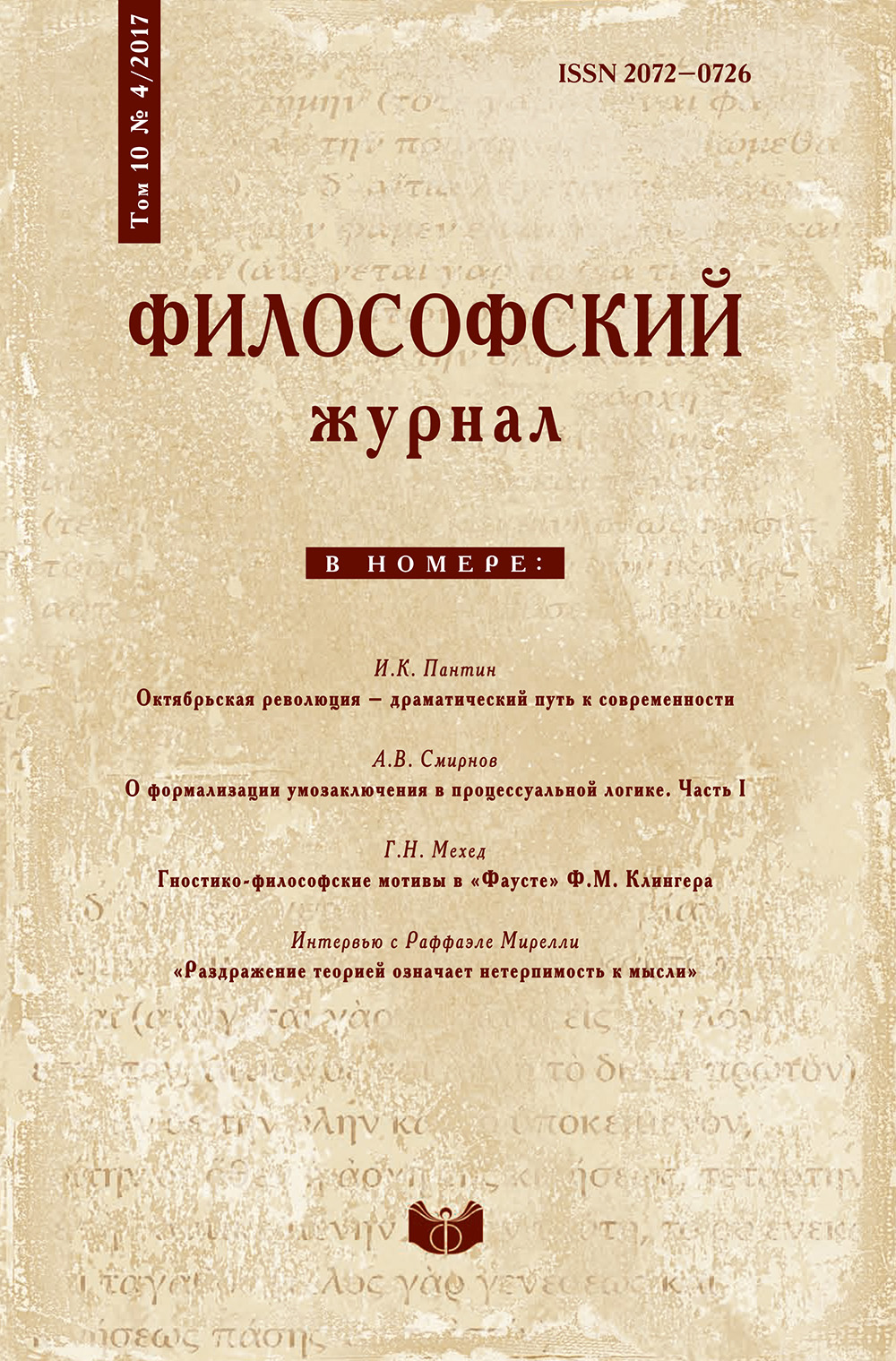Revolution as a chronopolitics and an ethos
DOI:
https://doi.org/10.21146/2072-0726-2017-10-4-21-40Keywords:
revolution, chronopolitics, politics of speed, present age, modernity, postmodernity, novelty, order, freedom, totalitarianism, political narcissismAbstract
The present article examines the two opposing approaches to revolution, that of cult-like worship vs. that of amnesia, or the nation's foundation myth vs. the origin of trauma. The author provides an analysis of the contradictory attitude toward the October Revolution in today's Russia, both when considered as an event in 1917 or seen as a political fact of universal significance. The recent history and political overturns which occurred in geographical proximity of Russia give multiple examples of how the idea of revolution as the highest possible threat is formed. This perspective allows to view Modernity as a revolution in itself and also as the Age of revolutions, fundamental to which is the conflict between the idea of the new and that of order, as well as dualism between modernization and totalitarianism, freedom and technocratic dictatorship. Particular attention is given to the destiny of both the notion and the phenomenon of revolution in postmodern thinking, considering its perception of history as a 'vanishing denotatum'. Revolution can also serve as one of the key notions of chronopolitics, or the politics of speed. Apart from this, the author attempts to demonstrate the historical nature of such terms as 'the present age', 'the time being', and similar: they emerge only when unified time, owing to ever increasing speed, gets exfoliated engendering the conflict between the alternating phases of lagging and outstripping. From the anthropological point of view, revolution can be analysed in terms of pathopsychology of political narcissism.






